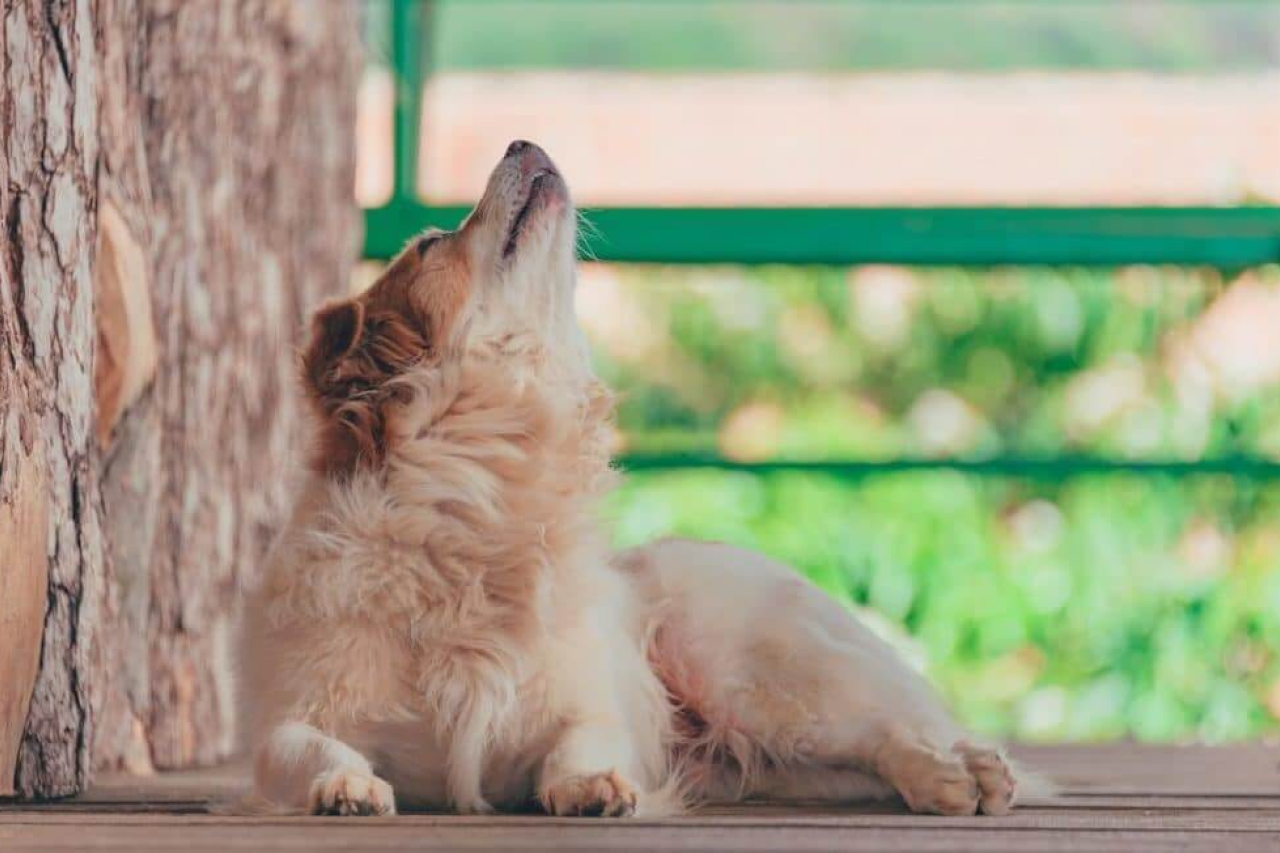
Why Do Dogs Howl? How to Interpret This Common Canine Behavior
It's loud. It's persistent. It's annoying. But it's something that almost every dog does to some degree or another: Howl.
Your howling dog probably brings to mind his or her ancient wolf ancestors, who have howled for generations in the wild. And it's true that the howling behavior of ancient wild dogs has been passed down to our modern-day house pets.
But why do dogs howl when they’ve now become domesticated animals? And even more importantly, is howling ever a cause for concern from dog parents?
Let's explore the world of dog communication to find out why dogs howl, and whether or not your dog's howling is normal canine behavior or something you should be worried about.
The Roots of Your Dog's Howl
Howling in dogs, like many of your canine companion’s behaviors, has ancient ancestral roots. The forefathers of the domestic dog, the wild wolf, used howling as a form of communication to "talk" with their other pack members.
Wolves may have also used howling to warn other wild animals to stay out of their territory. This kind of communication is still seen in wolves today — wolves howl regularly in order to communicate with their family members and other animals.
Remember: Our modern-day dogs are still pack animals, it's just that their pack consists of you and your family. So, your dog's howling is truly an instinctual behavior, just like walking and talking is for you.
Aside from barking, howling is the main form of vocal communication your dog uses to interact with those around him or her, human and canine alike.
Some dog breeds are known in particular for their howling prowess, including:
- Beagles
- Alaskan malamutes
- Coonhounds (bluetick, redtick, black-and-tan, treeing walker, and others)
- Foxhounds
- Bloodhounds
- Basset hounds
- Shetland sheepdogs
- Dachshunds
- Huskies (Siberian and Alaskan)
- American Eskimo dogs
If you own a pup from one of these dog breeds, you've almost certainly heard some howling out of your furry friend. Other dogs who tend to be quieter can howl too, though.
So what are some of the normal, healthy reasons your dog might howl? And what are some reasons for dog howling that aren't so good?
The Healthy Reasons for Howling

We've already seen that howling is an instinctual type of vocalization that dogs emit naturally. The question is, why do dogs howl at all? It turns out that there are several healthy and normal reasons why a dog might howl.
Responding to Stimuli
Dogs often howl when they're stimulated by certain sounds in their environment. The sound could be a siren from an emergency vehicle, music or musical instruments, another dog's howling or barking, and just about anything else. High-pitched noises tend to be a common culprit, because dogs can hear higher pitches than humans and those pitches sometimes cause irritation, resulting in your dog's vocalizations. Howling is your dog's way of acknowledging that the sound was heard and that they are ready to respond. In most cases, your dog will stop howling when the sound itself stops.
Signaling Their Location
Have you ever heard your dog howling as you're coming back up the driveway or climbing the stairs to your front door? This howling scenario might be tied to instinctual and ancestral behavior. In the wild, some pack members would stay at the home base while others ventured out in search of food. Those who stayed at home would howl to signal their location and guide the scouting members back to base. It's possible your dog is doing the same thing. If you come home and hear your dog howling as you get out of the car, it's possible that your dog has been vocalizing like that the entire time you've been gone. This is most likely due to separation anxiety, which we'll take a closer look at below.
Displaying Territorial Behavior
Dogs are territorial animals — it's simply a built-in part of dog behavior. So, howling can serve as your dog's way of announcing that your home is their territory, letting intruders know what's what. In the wild, howling serves as a defense mechanism to let potential predators know that an area is claimed and that it's ready to be defended. Your modern-day pooch might howl when they see a stranger approaching your home, whether it's a delivery worker or a neighborhood pet.
Discovering Something Exciting
Dogs might also howl when they've found something they consider exciting. Wild dogs tend to howl when they've cornered a prey animal, and even modern-day hunting dogs are trained to howl when they've found their quarry. At home, your little howler might vocalize when they've found a bone they buried in the flowerbed, or a forgotten toy they've discovered under the couch.
Crying Out for Attention
Just like human children, some dogs cry out in order to seek attention. Howling for attention can be innocent enough, but it can also become bothersome if it's persistent. Try to avoid giving your dog attention when he or she howls, even to reprimand them, because it's giving in to what they really want. If the problem is serious enough, you might need to seek the help of a professional dog trainer or animal behaviorist.
The Bad Reasons for Howling

Just as some reasons for howling are natural and normal, there are other reasons why howling might be a cause for concern.
Stress and Anxiety
Unfortunately, one of the most common causes of howling in dogs is separation anxiety. This is a condition in which your dog becomes extremely anxious when left alone in the house. In addition to barking and howling, a dog with separation anxiety might eliminate in the house, destroy furniture or other property, or even self-mutilate. Separation anxiety will sometimes go away on its own as a dog gets older, but it often needs to be dealt with through behavior modification techniques, professional dog training, medication, or a combination of all three. Ask your veterinarian for help if you think your dog is suffering from separation anxiety. The sooner you get the problem dealt with, the better for everyone involved.
Injury and Pain
Howling might also indicate that your dog is experiencing pain, perhaps from a physical injury or some other kind of medical issue like arthritis, an ear infection, or periodontal disease, for example. Other body language cues like wincing, shying away from touch, or excessive panting might accompany howling if pain is the cause. If your dog isn't usually a howler but has suddenly started howling on a consistent basis, pain could be to blame. It's time to set up an appointment with your veterinarian to have your dog checked out.
So, Why Do Dogs Howl, Exactly?
Why do dogs howl? There isn't one single reason why dogs emit this sound — there are many possibilities. Generally speaking, dogs bark and howl to communicate with other dogs, other animals, and their human families. It's up to you to figure out exactly what your canine companion is saying. You know your dog best. That means that you'll probably be able to determine if your dog's howling is something to worry about.
If you think your dog is anxious or might be in pain, let your veterinarian know. If your dog howls occasionally at a passerby or another dog walking down the street, it's probably not be a big deal. If howling becomes persistent and begins to bother your family members or neighbors, it might be time to seek help from a dog trainer.




























